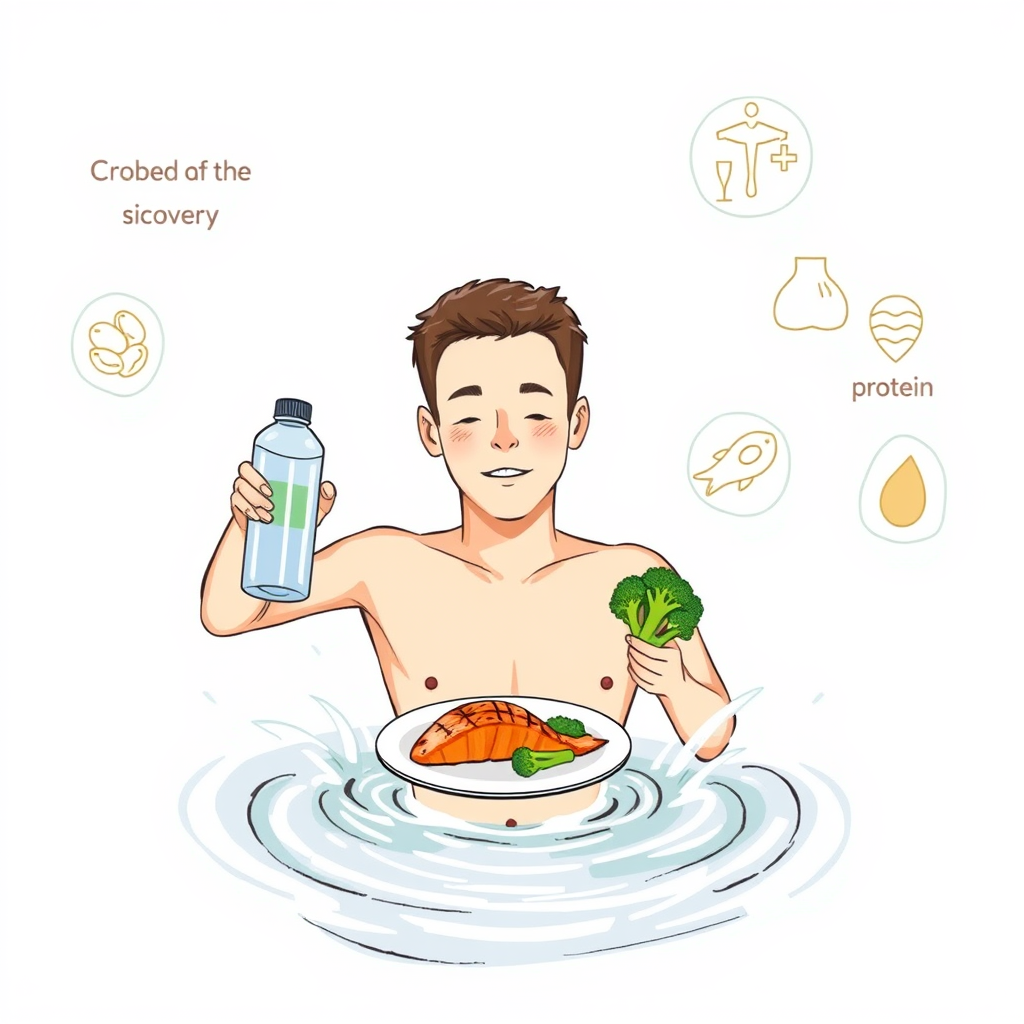Swim Faster: The Ultimate Nutrition Guide for Athletes

Fueling Performance: A Deep Dive into Swimmer Nutrition
Swimming demands an extraordinary level of physical conditioning, requiring athletes – and even recreational swimmers – to meticulously consider their nutritional intake. It’s not simply about calories; it’s about strategically fueling the body for optimal performance, rapid recovery, and sustained energy levels. The demands are significant – an hour of intense training or competition can easily burn hundreds of calories, often exceeding the caloric expenditure of other sports. This necessitates a focus on quality calories, prioritizing a balanced macronutrient approach.
Carbohydrates are paramount, serving as the primary energy source. Swimmers should aim for 6-10 grams per kilogram of body weight, emphasizing whole grains, fruits, and starchy vegetables like sweet potatoes. Protein, crucial for muscle repair and recovery, should constitute 1.2-2.0 grams per kilogram of body weight, sourced from lean options like eggs, chicken, fish, tofu, and legumes. Healthy fats, comprising 20-35% of total intake, are vital for hormone function and long-term energy, found in avocados, nuts, seeds, and olive oil.
Timing is equally critical. A balanced meal consumed 2-4 hours before training or competition allows for proper digestion and energy conversion. This meal should be high in carbohydrates, moderate in protein, and low in fat and fiber to avoid digestive discomfort. For shorter timelines, quick-digesting snacks like a banana with peanut butter or a small fruit smoothie can provide a necessary boost. During prolonged sessions exceeding 60 minutes, supplementing with 30-60 grams of carbohydrates per hour, alongside a small amount of protein, can help maintain energy levels and reduce muscle breakdown. Easily digestible options like sports gels, drinks, orange slices, or raisins are ideal.
Recovery is where gains are truly realized. Consuming a meal or snack within 30-45 minutes post-exercise, with a 3:1 carbohydrate-to-protein ratio, replenishes glycogen stores and supports muscle repair. Chocolate milk, a turkey sandwich on whole-grain bread, Greek yogurt with granola and fruit, or a protein smoothie are all effective recovery options.
Consistent daily nutrition is the foundation of sustained performance. Three main meals, supplemented by 2-3 healthy snacks, should provide a steady stream of energy throughout the day. A sample plan might include scrambled eggs with whole-wheat toast for breakfast, yogurt with berries and almonds for a morning snack, grilled chicken with brown rice and vegetables for lunch, a protein bar for an afternoon snack, baked salmon with sweet potato and broccoli for dinner, and cottage cheese with peaches for an evening snack. Portion sizes should be adjusted based on individual needs and activity levels.
Hydration is often overlooked but is arguably the most crucial element. Swimmers should aim for at least 2-3 liters of fluid daily, increasing intake on training days. Monitoring urine color – aiming for a light yellow hue – is a simple way to assess hydration status. Replenishing electrolytes lost through sweat, particularly sodium, potassium, and magnesium, is also essential, especially in hot weather or during prolonged sessions. Sports drinks or coconut water can be helpful in this regard.
Specific nutritional needs vary based on age and dietary choices. Youth and adolescent swimmers require extra nutrients to support growth and development, emphasizing calcium, vitamin D, and iron. Vegetarian and vegan swimmers must prioritize plant-based protein sources like beans, lentils, tofu, and quinoa, and may need to supplement with B12 and omega-3 fatty acids.
While supplements can be beneficial in addressing specific deficiencies, food should always be the primary source of nutrients. It’s crucial to consult with a registered dietitian before starting any supplement regimen. Common pitfalls to avoid include skipping meals, overindulging in processed foods, and neglecting hydration.
Ultimately, swimmer nutrition is a holistic approach that extends beyond simply what you eat to when and why. By prioritizing consistent, balanced nutrition, swimmers can unlock their full potential, enhance recovery, and enjoy a healthier, more fulfilling experience both in and out of the pool. Keeping a food journal to track how different foods affect performance is a simple yet effective strategy for optimizing individual nutrition plans.